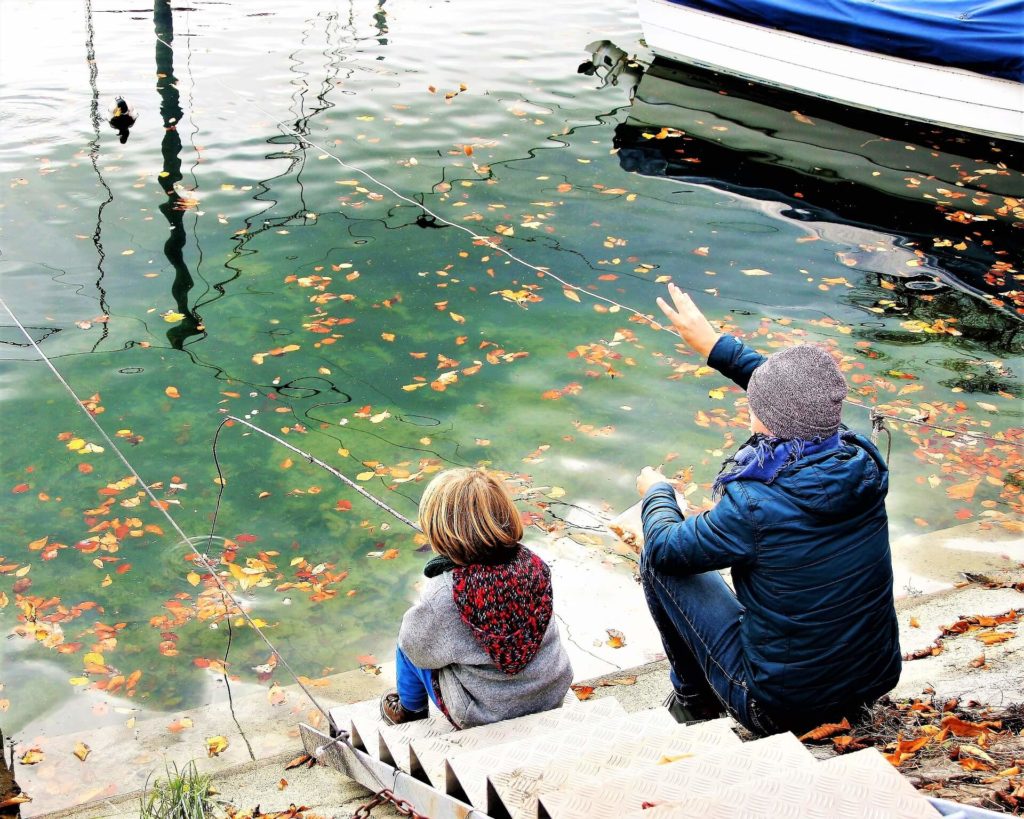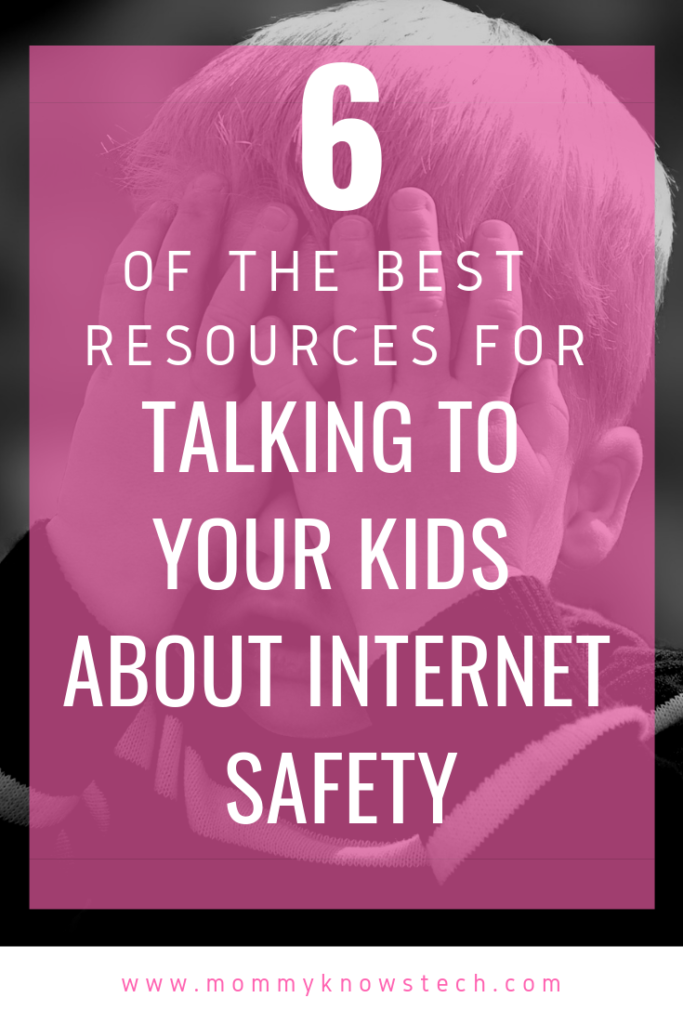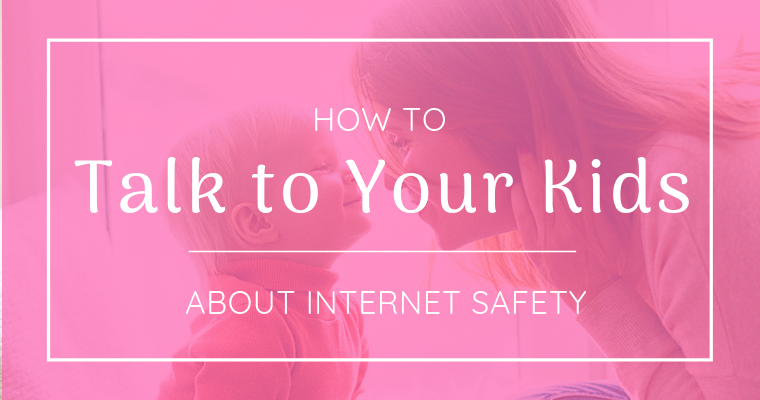This post may contain affiliate links, meaning at no additional cost to you I may earn a small commission when you click a product or company link. As an Amazon Associate I earn from qualifying purchases.
After the whole “Momo Challenge” hoax blew over, I asked my readers what kinds of resources they wanted for keeping kids safe online. A few chimed in with requests for how to talk to your kids about internet safety.
Related: How YouTube Can Be Safe for Kids
How do you talk to kids about what they might encounter on the internet? What should they do if they have a bad experience? And how can they keep themselves safe?
My children are still very young, and I closely monitor and limit their screen usage. So this isn’t a topic I’ve personally dealt with yet. Honestly, though, I probably need to start having small conversations on the topic with my 3-year old.
(By the way, if you have very young kids too, take a look at my course on reducing your toddler or preschooler’s screen time without sacrificing your own productivity.)
After quite a bit of research, I came across a number of excellent resources. Since this isn’t something I’m personally just in the beginning stages of tackling, I think it would be best for you to hear it from the people who’ve “been there, done that.”
Here are some of the best resources I’ve found about having the internet safety “talk” with your kids.
Table of Contents
1. Use age-appropriate analogies when you talk to your kids about internet safety

I think it’s easier to talk with our kids on their level when we’re playing or just having fun with them. But when we start to talk about serious, more “grownup” issues, it can be hard to remember that they don’t know everything we know. The words we use among ourselves to talk about the issues may end up just confusing them.
That’s why I love this post from Tove Maren at Mama in the Now. When she had the online safety talk with her son after he got his first cellphone, she compared the internet to their house. Rules that apply to the home also apply to the internet.
For example, the rule that children don’t stay home alone is equivalent to the rule that children should not access the internet without an adult present. The rule that parents answer the front door when someone knocks is equivalent to the rule that children should tell an adult if someone they don’t know tries to contact them.
Her post is definitely worth a read if you struggle with how to present internet safety in terms children can grasp. Read it here.
2. Talk to your teens about being safe on social media
Leah Nieman has a great post on the pros and cons of having full access to a child’s social media accounts. She touches on how teens may get around their parents’ monitoring efforts and then gives an alternative to simply spying. Her series of tips will help you build a strong relationship with your teen so they can feel confident coming to you about what’s going on both in their real life and their online life.
As she says, “Parental controls may show you what your child is doing; it may give you a sliver of insight. But if your child isn’t communicating with you, it’s hard to understand what’s really happening in their digital life.”
Her tips include pointers for making technology discussions part of your everyday life, reviewing privacy settings together, and what to do when they do encounter troubling content online. She also covers what should be in a family media agreement, internet etiquette (netiquette), and how to make technology fun (not just something to be scared of).
It’s a thorough, well-thought-out post that will give you insight into talking to your teen about technology. Read the post here.
3. Encourage two-way conversation when you talk to your kids about internet safety

As parents we have the huge privilege and responsibility of teaching our children right from wrong. We must teach them to navigate life safely. But it’s not enough for us just to tell them what they should or shouldn’t do or may or may not encounter. We also need to encourage them to talk to us and then actually listen to what they have to say.
I struggle with this with my three-year old. I often find myself just lecturing him instead of drawing him into the conversation and leading him to right answers.
That’s why I enjoyed this post by Joe Yeager of PediatricSafety. He talks specifically about internet safety–why children may not open up about things they see online and how to ask questions that encourage conversation about what they’ve encountered.
His insights into handling conversations are helpful not just for technology discussions but for talking to kids in general. I will definitely be putting these concepts into action.
4. Be honest with your kids about the internet

I love this post from Confessions of a Single Mum. She has such a balanced view of how to approach talking to your kids about internet safety. (And you know I’m all about balance here!)
Talking to your kids about the internet means talking both about the benefits and the dangers–not just the scary stuff. It means involving them in the conversation. (See the post from PediatricSafety above for more on that.)
And it also means establishing clear expectations. Let them know what you expect from them, and be honest with them about how you’ll be enforcing those expectations. Will you be checking their email periodically? Tell them so! If they know what to expect, neither of you will ever have to feel like you’re sneaking around to spy on them.
Read her words of wisdom here.
Related: How to Create Screen Time Rules That Work
5. Know how to do damage control

The NSPCC (a UK-based charity that works to prevent child abuse and help children recover from abuse) has a great article on their website about keeping your children safe online.
The article offers useful talking points for starting and continuing conversations about internet safety. I like their recommendation to involve children in the process of deciding what apps and sites are appropriate.
You’ll also find helpful advice for what do if you’re concerned your child has been taking or sharing inappropriate pictures, giving away personal information, looking at pornography, being bullied, bullying others, or spending too much time online.
You can find that article here.
6. Talk about current events relevant to internet safety

Finally, here’s a useful tip for making it easy to talk to your kids about internet safety on an everyday basis. Covenant Eyes (an internet filtering system) used to offer a regular “Table Talk” series on their blog. In this series, they shared recent news stories and suggested questions for talking with your kids about the news stories.
Although the Table Talk series is no longer active, you can search their blog for “table talk” and see the past posts. Try talking about the stories they reference, or just use the posts as inspiration for your own “Table Talk” topics. You can read one of the Table Talk posts here.
Don’t forget to pin to Pinterest so you can come back to these resources later!


